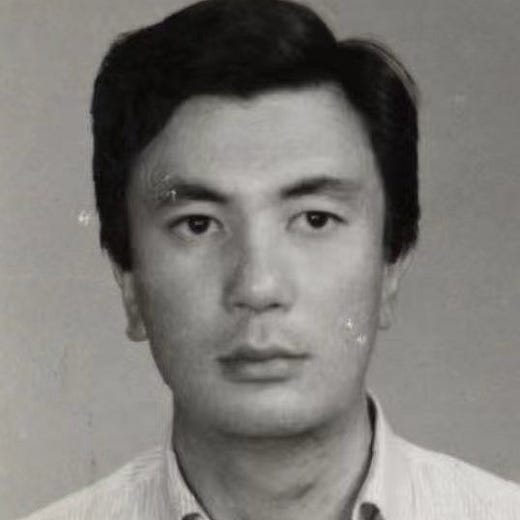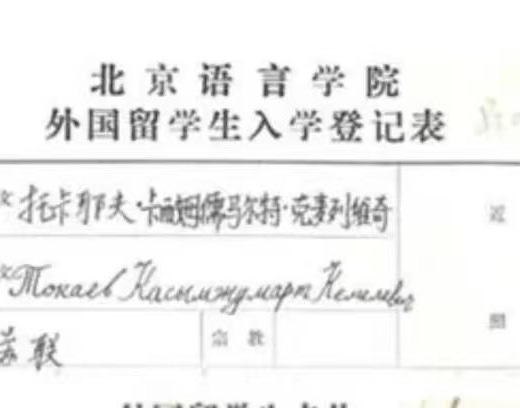China supports Kazakhstan reforms that the U.S. & EU also welcome
President Tokayev is a China specialist.
Despite Beijing’s repeated statements that it is not interested in exporting its governance model, one of the lingering and biggest suspicions in the West is that China will translate its growing international influence to the rise of authoritarianism and the impediment of liberal democracy.
But when Kazakhstan, the Central Asian nation to which Chinese President Xi Jinping just paid a state visit, undertook what the U.S. termed “ambitious” reforms that the European Union also welcomes, Beijing gives “firm support.”
According to Xinhua’s readout of Xi’s state visit, in English
China highly values its relations with Kazakhstan, and firmly supports Kazakhstan in safeguarding national independence, sovereignty and territorial integrity, and in taking reform measures to preserve national stability and development, Xi said, adding that China will always be a trustworthy and reliable friend and partner of Kazakhstan.
China is ready to work with Kazakhstan in firmly supporting each other's development and rejuvenation, and helping each other achieve development and prosperity. The unbreakable friendship between China and Kazakhstan will contribute to the growth of positive and progressive forces in the world and to the building of a community with a shared future for mankind, Xi said.
Secretary of State Tony Blinken on May 20 described
President Tokayev’s political and economic reforms as a positive step in promoting prosperity, strengthening security, and protecting human rights in Kazakhstan and Central Asia.
The U.S. embassy in Kazakhstan described the reforms as “ambitious” on Sept. 1
The European Union has also welcomed the reforms, with the European External Action Service, the bloc’s de facto foreign ministry, saying on June 7
The EU takes note of the Constitutional Referendum in Kazakhstan, which took place on Sunday, 5 June. With this referendum, the people of Kazakhstan supported important constitutional amendments aimed at strengthening the democracy of the country.
The EU welcomes the political reforms initiated by President Tokayev on March 16 in addition to the socio-economic reforms started after the tragic January events. We also welcome the decision to consult the population directly and to invite OSCE ODIHR to monitor the Referendum. Looking ahead, it will be crucial for Kazakhstan to implement fully the OSCE/ODIHR recommendations.
So what reforms have President Kassym-Jomart Tokayev launched in the largest country in Central Asia and the ninth largest in the world?
Svante E. Cornell and Albert Barro, with the Central Asia-Caucasus Institute & Silk Road Studies Program, a Joint Center affiliated with the American Foreign Policy Council and the Stockholm-based Institute for Security and Development Policy, summarized them in EURACTIV, an influential media outlet in Brussels
Tokayev’s reforms aim to reduce the power of the presidency. The president will no longer be permitted to be connected to a political party during his tenure, and his close relatives will be forbidden from serving as senior public servants or as heads of public sector institutions. Furthermore, the president forfeits the right to cancel actions by regional mayors.
Reducing presidential power is matched with the strengthening of parliament. Presidential appointments will now require Senate approval, and the Supreme Audit Chamber, which will oversee the national budget, is to report biannually to the lower house of parliament.
Furthermore, while in the past, the upper house adopted laws, this is now shifted to the more representative lower house, reducing the senate’s role in approving laws passed in the lower chamber.
This shift is magnified by introducing a mixed electoral system for the lower house, with 30% elected in single-member districts and 70% by party lists. Steps are also being taken to lower the obstacles to forming new political parties.
The amendments address several human rights issues too. A key amendment is the establishment of a Constitutional Court to which citizens, along with the Prosecutor General and Human Rights Commissioner, can appeal directly to challenge violations of constitutional rights. The Prosecutor General and Human Rights Commissioner also receive greater independence from other state bodies or officials.
Those amendments have been approved in a referendum on June 6, as Reuters reported
NUR-SULTAN, June 6 (Reuters) - Kazakh President Kassym-Jomart Tokayev pledged on Monday to make good on plans to push through democratic reforms in Kazakhstan, after a clear majority of voters approved constitutional amendments he had laid out in a referendum.
The Central Election Commission said that 77.18% of Sunday's votes were in favour of the amendments, which decentralise decision-making in the oil-rich country and strip former strongman Nursultan Nazarbayev of his "national leader" status. Turnout was 68.06%.
Most recently, President Tokayev proposed limiting future Presidents to one seven-year term, as the Financial Times reported on Sept. 1
Kazakhstan’s president has called for snap elections this year and announced plans to limit the president’s tenure to a single seven-year term, in what would be the most significant political change in the oil-rich central Asian nation since independence following the collapse of the Soviet Union.……
Speaking during the annual state of the nation address on Thursday, Kassym-Jomart Tokayev said: “I propose to hold extraordinary presidential elections in autumn this year. For me, the state interests stand above all, so I am ready to hold snap presidential elections despite cutting short my own term.”Limiting the presidential term would “significantly lower the risks of power monopolisation”, he added. The next presidential election had been scheduled for 2024. The country’s parliament must approve the presidential term change. “If it is passed, Kazakhstan will enter a new political epoch,” Tokayev said.
It’s also worth noting that China, as Xi is quoted in the readout as saying, “firmly supports Kazakhstan in safeguarding national independence, sovereignty, and territorial integrity.”
China highly values its relations with Kazakhstan, and firmly supports Kazakhstan in safeguarding national independence, sovereignty and territorial integrity, and in taking reform measures to preserve national stability and development, Xi said, adding that China will always be a trustworthy and reliable friend and partner of Kazakhstan.
A former republic of the Soviet Union that relied on Russian troops to quell domestic unrest and restore peace and order at the beginning of this year, Kazakhstan’s stance in the war in Ukraine is interesting, as reported by the Wall Street Journal on July 24
ALMATY, Kazakhstan—At the start of the year, Russia dispatched more than 2,000 troops to its longtime ally Kazakhstan to help put down violent antigovernment unrest. Six weeks later, when Russian troops stormed into Ukraine, Kazakhstan had an opportunity to repay the favor by supporting the invasion.
It didn’t.
Instead, Kazakhstan has joined other Central Asian countries along Russia’s southern frontier in staying neutral on the invasion, leaving Belarus as the only ex-Soviet state that has offered full-throated support. Kazakhstan has promised to enforce Western sanctions against Moscow, said it would boost oil exports to Europe via routes that bypass Russia, upped its defense budget and hosted a U.S. delegation meant to coax the Central Asian country closer to Washington’s orbit.
The growing distance between Moscow and its largest ally in Central Asia represents an unexpected challenge to Russian President Vladimir Putin. For decades since the fall of the Soviet Union, Moscow has worked to maintain influence across Central Asia through military and economic alliances with its former sister republics. Chief among them is Kazakhstan, an oil-rich country larger than the size of Western Europe. The two countries share a 4,750-mile border, the world’s second longest frontier after the U.S.-Canada border.
Russia’s invasion of Ukraine—a fellow former Soviet republic that shares a lot of similarities with Kazakhstan—is changing that relationship. Now Kazakhstan is rethinking Russia’s privileged position in its foreign policy and reaching out to countries like the U.S., Turkey and China, according to interviews with current and former Kazakh officials, lawmakers and analysts.
A telling moment came in June, when Kazakh President Kassym-Jomart Tokayev flew to Russia for Mr. Putin’s flagship economic forum in St. Petersburg. Sharing the stage with the Russian president, Mr. Tokayev said Kazakhstan wouldn’t recognize the two Moscow-backed separatist states in the Donbas region of eastern Ukraine that Mr. Putin says he is liberating. When asked by the panel’s moderator whether the West was pressuring his country, Mr. Tokayev deflected the question.
During his visit, Mr. Tokayev told Russian state television that his country wouldn’t help Russia violate sanctions, but stressed that Russia would remain a key ally. “Kazakhstan is in no way renouncing its allied obligations,” he said.
On March 2, Kazahstan abstained from the United Nations General Assembly resolution that demands Russia immediately end its military operations in Ukraine.
In the April 7 vote, Kazakhstan voted against expelling Russia from the United Nations Human Rights Council.
China’s “firm support” comes at a time of both domestic political change and intense diplomatic activity in Kazakhstan. Notably, President Tokayev is a China specialist by training.
Tokayev was a student at what is now 北京语言大学 Beijing Language and Culture University. Here is his photo and student registration card, shared by an anonymous Twitter account which has earned an intense following in the China-watching community.
As profiled by The Guardian,
Tokayev specialised in Chinese. He mastered the language, joined the far-east division of the Soviet foreign ministry and spent much of the 1980s at Moscow’s embassy in Beijing.
He spoke very good Chinese during part of his interview with China’s national broadcaster in 2019 (starting around 1:09)
Lastly, don’t forget Kazakhstan is a huge country the size of Western Europe.
(credit: BBC)





